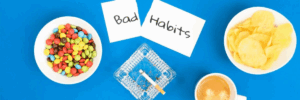Experiencing a kidney stone can be intensely painful and disruptive. These hard deposits, made of minerals and salts, form inside your kidneys and can affect any part of your urinary tract. While various factors contribute to their formation, your diet plays a significant role. Understanding how to prevent a kidney stone is crucial for long-term health, and implementing a specific kidney stone diet is one of the most effective strategies. By making informed food choices, you can significantly reduce your risk of developing this common urological issue.
At Doral Health & Wellness, we provide comprehensive care and guidance for your urological health. Our team is dedicated to offering supportive and reliable information to help you manage your health proactively. We are committed to empowering our patients with the knowledge needed to make lasting positive changes.
Understanding the Kidney Stone Diet and How to Prevent Kidney Stones
A kidney stone diet is not about extreme restrictions but about mindful eating. The primary goal is to manage the levels of certain substances in your urine that can crystallize and form stones. Depending on the type of kidney stone you have had, your dietary needs may vary slightly, but general principles apply to most situations. Adjusting what you eat and drink is a powerful, proactive step toward preventing future stones. For those living in the city, finding a “kidney doctor in NY” can be the first step toward a personalized plan.
Stay Hydrated—It’s Non-Negotiable
The single most important part of any kidney stone prevention plan is hydration. Drinking enough water dilutes the substances in your urine that lead to stones.
- How much to drink – Aim for 2 to 3 liters of water per day, which is about 8 to 12 glasses.
- What to drink – Plain water is best. You can also include citrus drinks like lemonade or orange juice, as the citrate in these beverages can help prevent stone formation.
- Signs of good hydration – Your urine should be light yellow or clear. If it is dark yellow, you need to drink more fluids.
Reduce Your Sodium Intake
A high-sodium diet can increase the amount of calcium in your urine, which raises your risk for calcium oxalate and calcium phosphate stones. Limiting salt is a key component of a kidney stone diet.
- Read labels carefully – Processed foods, canned soups, and fast food are often very high in sodium.
- Cook at home – Preparing your own meals gives you control over the salt content.
- Choose fresh over processed – Opt for fresh fruits, vegetables, and unprocessed meats.
Limit Foods High in Oxalate
Oxalate is a natural compound found in many foods that can bind with calcium in the urine to form calcium oxalate stones, the most common type of kidney stone. While you do not need to eliminate oxalate completely, moderating your intake is crucial.
Foods high in oxalate include:
- Spinach and other leafy greens like Swiss chard
- Nuts, especially almonds and cashews
- Rhubarb
- Beets
- Wheat bran
It’s important not to cut out these foods entirely, as many are healthy. Instead, eat them in moderation and pair them with calcium-rich foods. The calcium can bind to oxalate in the stomach and intestines before it reaches the kidneys, helping to excrete it from your body.
Foods to Include for Kidney Stone Prevention
While some foods should be limited, others can be actively beneficial. Focusing on a balanced diet rich in certain nutrients can support your efforts to prevent a kidney stone. If you’re looking for specialized advice, searching for the “best nephrologist in New York” can connect you with an expert who can tailor a diet plan to your specific needs.
Maintain Adequate Calcium Intake
It may seem counterintuitive, but a diet low in calcium can actually increase your risk of developing kidney stones. You need enough calcium to bind with oxalate in your digestive tract.
- Good sources of calcium – Dairy products like milk, yogurt, and cheese are excellent choices.
- Non-dairy options – If you are lactose intolerant, consider calcium-fortified juices, cereals, and plant-based milks.
- Supplements vs. food – It is generally better to get calcium from food rather than supplements, as some supplements have been linked to an increased risk of stones. Always consult a professional before starting any supplement; a local search for a “kidney doctor near me” can help you find one.
Reduce Animal Protein
Diets high in animal protein, such as red meat, poultry, and eggs, can increase uric acid levels and reduce citrate levels in your urine. This environment makes both uric acid and calcium oxalate stones more likely to form.
- Portion control – Limit your daily intake of meat to a portion about the size of a deck of cards.
- Incorporate plant-based proteins – Beans, lentils, and tofu are excellent protein sources that do not pose the same risk.
- Fish is a good option – Certain types of fish can be a healthy part of your diet in moderation.
Finding a “kidney doctor in NY” who understands dietary management is vital for success. The “best nephrologist in New York” will work with you to create a sustainable and effective plan.
Putting It All Together for Your Health
Preventing kidney stones is a long-term commitment, but it doesn’t have to be overwhelming. By focusing on hydration, moderating your intake of sodium and oxalate, and ensuring you get enough dietary calcium, you can take control of your urological health. A well-managed kidney stone diet is a cornerstone of prevention. When you need expert guidance, a “kidney doctor near me” can provide the personalized support you require.
If you have experienced a kidney stone or are at high risk, it is important to work with a healthcare provider. They can perform tests to determine the type of stone you form and provide tailored advice.
For expert care and personalized health strategies, contact Doral Health & Wellness today at 1-718-365-2555 or visit us at 1797 Pitkin Avenue, Brooklyn, New York 11212. Our team is here to provide the support and guidance you need for a healthier future. For general information about Doral Health & Wellness services, you can contact or email info@doralhw.org.






